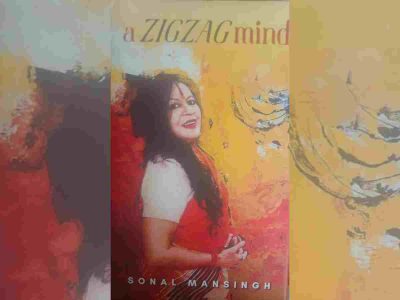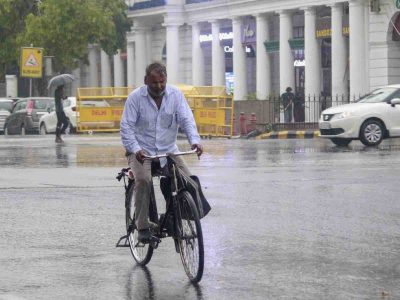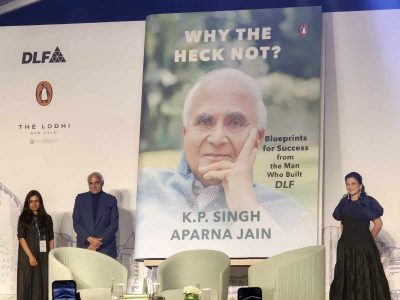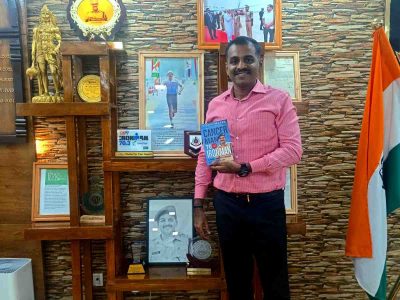Ram Bilas Gupta, 52, sits alongside a treasure of books in his tiny shop in Nai Sarak. While there are similar bookshops across the road, what sets ‘Gupta Book Corner’ apart from them is the owner’s claim of it being the only seller of comic books in old Delhi.
“It comes as a surprise to everyone but the thing is that there’s no demand [for comic books] these days,” says Gupta.
Visual storytelling has, for long, been used to disseminate aspects of Indian culture and traditions to the young generation. Mythological characters, for example, have been used to spread moral values to children. This nurtured the industry of comics and graphic novels in India. A comic book makes the story interesting to read.
However, the advent of electronic devices like mobile phones and their subsequent popularity has dealt a blow to the comic book industry.
“The target of comic books are always kids because they are supposed to get attracted to the visuals. But everything has changed today because of smartphones. Children are hardly interested in reading and those who are, read something else and not necessarily comics,” explains Gupta.
“I am sitting here since the last two decades and the demand for comics has reduced drastically. There was a time when parents would bring their young ones to my shop and buy comics, from Chacha Chowdhury to Archie and Tintin… It was a glorious period. But now, there is hardly any customer,” added Gupta.
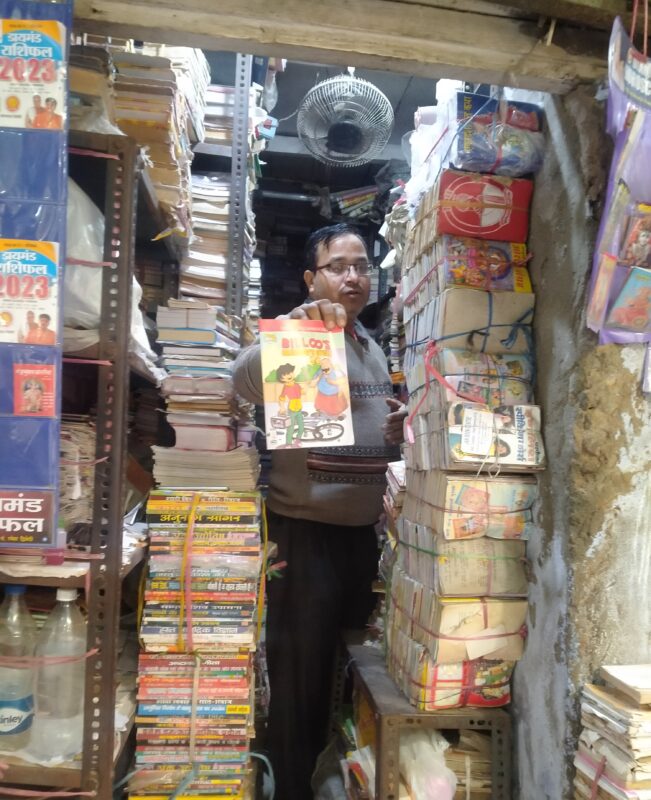
Gupta last sold a copy of comics in the month of October. Since then, there has been no one to buy comics from him.
Playing safe
Gupta feels his business is safe because he not only sells comics but has turned his shop into a tiny hub of novels for the young generation.
“The college-goers are my target audience. They come in large numbers on weekends, especially, to hang out and search for out-of-the-box stuff and I offer them novels at cheap prices. You see there’s a trend these days of showing off certain things. Even though the readership is less, the sales are high. Students prefer taking novels while travelling and many do read them too. That’s how I do business here,” added Gupta.
Unlike Gupta Book Corner, Raja Pocket Books, a renowned shop in Dariba Kalan (Chandni Chowk), had to shut amid the pandemic.
Founded by Rajkumar Gupta in 1984, Raja Pocket Books have published multiple series of comic books.
With comics like Nagraj, Super Commando Dhruva, Bhokal, Doga, Parmanu, Tiranga, Bankelal, Shakti, Inspector Steel, Ashwaraj, Bheriya and Anthony, the shop was the go-to place in Delhi for comic lovers.
In fact, Raj Pocket Books became one of the leading comic book distributors in India. The shop, as the locals still fondly remember, was located on the first floor in one of the alleyways of Dariba Kalan.
Sanjay Gupta, a member of the family that owns the publication, says, “We started with pulp-fiction books. After having an outstanding run and having published critically acclaimed authors like Surender Mohan Pathak, Ved Prakash Sharma, Anil Mohan and Raja, we switched to comics. We would sell up to one million copies of each comic. At the time, our business was at its peak.”
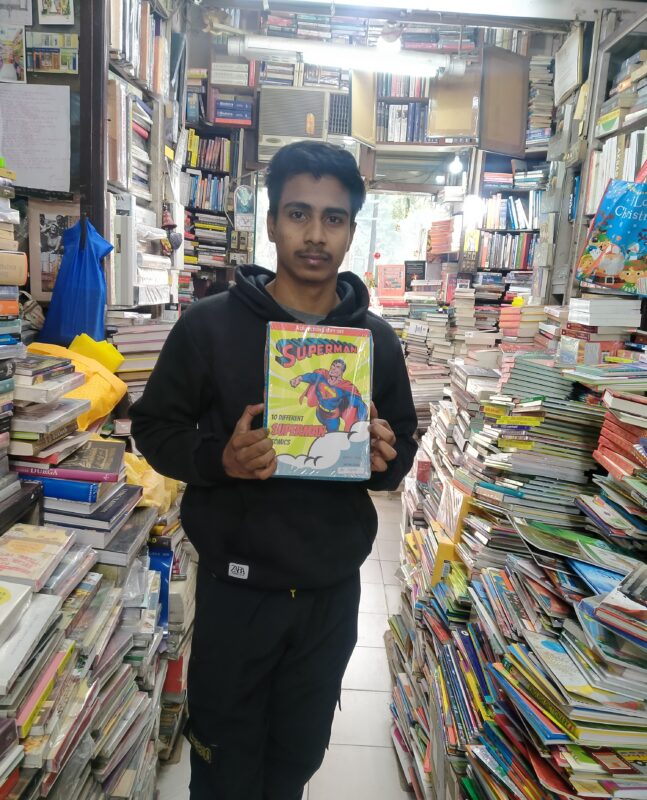
The business slowed down a few years ago.
“Things began to change drastically from 2016. The demand got affected due to new trends. For instance, some competitors/ beginners started printing zines (small-circulation and self-published magazines). Several other independent publishers ventured into the business with slim pamphlets like comics that attracted people.”
Today, Raja Pocket Books is set in north-east Delhi’s Burari (about 16 km from the original shop in Chandni Chowk). But the owners aren’t sure when they will open the shop on regular basis.
Locals say the shop is mostly shut.
Sharing the story of the shop’s extraordinary popularity in the past, Sanjay Gupta goes on to say, “While our father, Rajkumar Gupta, always had a passion for crime-thrillers, I and Manoj (Sanjay’s brother) started collecting Indian and international comics from an early age and got interested in the idea of creating original Indian superheroes. It was indeed a thrilling experience when we sit back and analyse.”
One day while both the brothers were having a discussion on comics, their father walked in and gave wings to the idea. That’s how Raj Comics was born.
They mainly publish four types of comics — medieval fantasy, horror, mystery and superhero.
They largely focus on superhero content. Generally published in Hindi language with only a few titles and special editions in English, a rough estimate shows that Raja Pocket Books has produced close to 35,000 comics to date. The comics, the owners claim, have been read by people abroad as well.
Taking into account the potential of online platforms and digital readership, the publication has also released an online exclusive web series named Raj Rojana with a new page uploaded every day.
The roadblock
Somesh Kumar, a comic writer who has been working on a 500-page comic set in his town Bihar, has completed about 50 pages in less than two months. While this work would have taken a year or so, Kumar has been able to do it at breakneck speed.
Similarly, illustrator Harsho Mohan Chattoraj has almost completed a 100-page comic.
But the challenge is finding a publisher? Illustrators and writers of comics have their calendars mostly free, thanks to the pandemic. The market seems to be going down.
“Even before the pandemic, the readership was extremely low and the distribution uncertain. There were hardly any editors, contractual bindings affected writers and Illustrators. Though everything had started looking bizarre, there was still hope. Pandemic just confirmed this slow death,” says Harsh, a salesperson at Faqir Chand and Sons, Khan Market.
One has to admit that the glorious past of comics has ended. The industry that once thrived is now starving. Publishers struggle to print even a minimum of 2,000 copies. Creators are paid a low price for the work and the distribution system is disrupted because of low profit margin. In short, the condition of comic books is critical.
Back in time, there were around 30 publishers producing thousands of comics a year but today there are only three or four publishers who publish fewer than a dozen comics a year.
Shashwat Bhattacharya, professor of English literature at Deshbandhu College, University of Delhi, explains, “Today we have zines, they are slim and easy to print. The beginners mostly experiment with publishing zines as they are cost effective too. And it works. A number of independent publishers these days want to explore zines and include themes like LGBT. It is convenient for younger people who wish to enter publishing sector. A few pages stapled and it’s done. Moreover, these small publishers of zines sell their homegrown comics at carnivals and comic festivals.”
According to a report by BBC, the comic sector in the 1980s depended primarily on warehouses, distributors, offices and salaries. Today, the report says, the comic industry is heavily dependent on local festivals, carnivals or bookstores willing to take the risk of keeping comics. That’s the only way out left for independent publishers and illustrators to survive in an otherwise sinking ship.
For the love of Comics
Seeing the struggle of the people associated with comic books business in India, some people have decided to take the matter in their hands.
The idea is to expand the readership by offering comics and food under one roof.
Set in the SDA market of Hauz Khas, What A Comic Show is an innovative café — from the stairs to the shelves inside, table covers and cushions, everything is based on comics. It is like entering the world of comics.
“It’s our 10th year running the cafe and we are extremely proud of ourselves. It is difficult to manage, especially when so many other alternatives have cropped up across the city. However, as a comic lover myself, I believe there are certain things that can never vanish. Yes, the demand has been reduced but there are still people who fondly look for comics in bookstores. We wanted to create something unique in this regard. Hence, a comic-themed cafe looked like a perfect amalgamation of art and food,” says Bhupen, the owner.
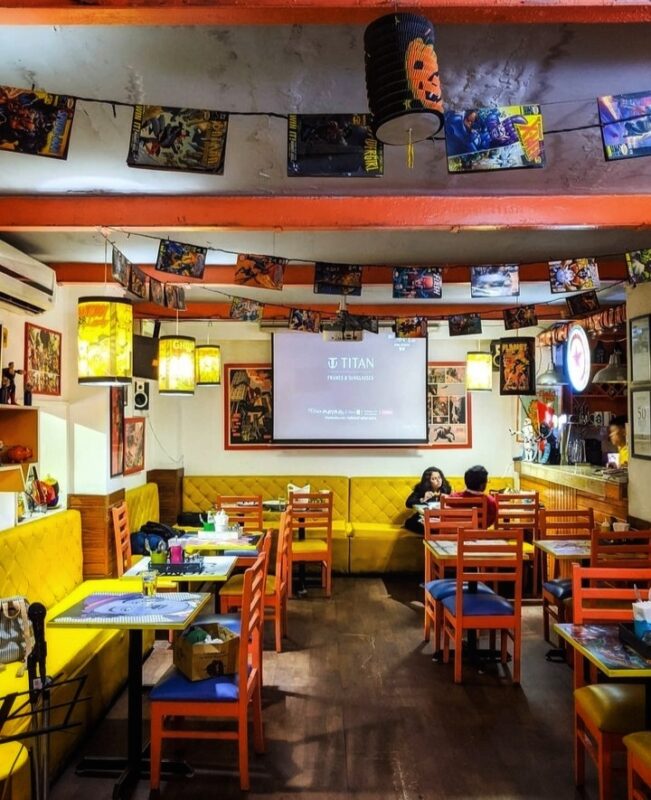
“Pandemic hit us hard and it was extremely difficult to come back but we are glad that people who visit our cafe love the way we have fused comics, a different world, seamlessly into a café,” he adds.
Like What A Comic Show, there are a few more places in the capital that are creating a unique impression. One such place is Manga Comics, a cafe which houses an impressive collection of Manga Comics. Run by a Japanese citizen, Yasu, the cafe is perfect spot for comic enthusiasts. Apart from a massive collection of Manga Comics, the cafe serves lip smacking dishes including Grilled Hamburg Steak and Teriyaki Chicken Don.
Follow us on:
Instagram: instagram.com/thepatriot_in/
Twitter: twitter.com/Patriot_Delhi
Facebook: facebook.com/Thepatriotnewsindia


